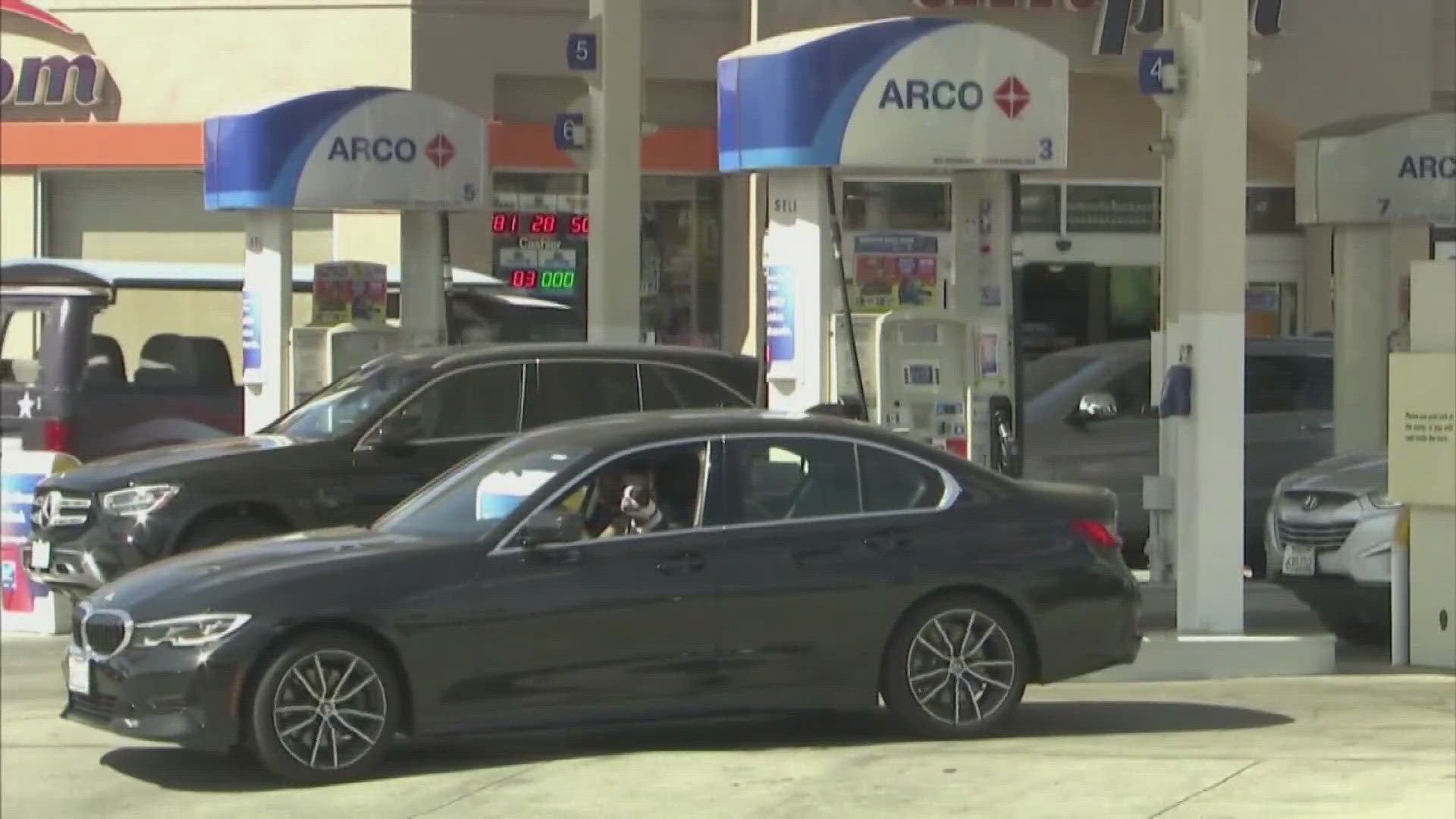SACRAMENTO, Calif. — Gas prices are going to go up in California, but nobody can say by how much.
That’s after the California Air Resources Board (CARB) approved changes to the Low Carbon Fuel Standard (LCFS), as ABC10 reported Friday. That’s a program aimed at helping the state meet its climate goals and reduce pollution.
“The LCFS is one of the state's most important and influential climate programs,” Steven Cliff, CARB’s executive officer, said at Friday’s meeting.
Just how much gas prices will go up is unknown.
“No model can accurately predict future credit prices, future transportation fuel prices or passthrough cost for retail gasoline or diesel,” CARB said in a presentation Friday.
Danny Cullenward calls that “bogus.” He is a senior fellow at the University of Pennsylvania’s Kleinman Center for Energy Policy and has been following the LCFS and Friday’s vote.
“We need to have an honest conversation about what we're asking people to do, what it's going to cost and whether or not it's working for the climate. And I think on all of those fronts this process was a deep disappointment,” Cullenward said. “It's not just that I put out numbers and the regulator disagreed; the regulator's official position is you can't calculate these numbers, and that's simply not a responsible way to talk about these issues.”
He published a report last month on California’s LCFS and told ABC10 he predicts the changes mean Californians could see gas prices increase 16 to 18 cents per gallon over the next six to 12 months.
“I do think it’s going to have some near-term impacts, but it’s not going to be catastrophic,” he said. “When you look out longer to 2030 or 2035, the potential for this program to add substantially more to fuel prices becomes much more likely and much more concerning, and I think that's an issue that the regulator is failing to take seriously.”
Republican State Senator Roger Niello (R-Roseville) told ABC10 he’s concerned not only about the gas price increase and that the exact amount is unknown but also how the change happened in the first place.
“This is going to cost motorists more money, but, in my opinion, the real problem is that we have a board, the California Air Resources Board, that it has complete authority to do things like this that affects everyday Californians' lives and pocketbooks, and they're completely unaccountable,” Niello said.
Board members are appointed, not elected.
Cullenward said that concerns him too, and he doesn’t think the Low Carbon Fuel Standard is effective.
“I don't think this is climate policy. I think this is regulatory capture. I think this is a handout to special interests,” Cullenward said. “As somebody who is a strong advocate for climate policy and wants to see the state take meaningful action, I can't stand by and see prices go up for consumers for things that I don't think are delivering.”
He said he’s especially concerned about biofuels, “especially crop-based biofuels.”
“It's a little surprising for some people, but when you make fuel out of food crops, you can increase pressure on agricultural activity and that can actually lead to deforestation throughout the world,” Cullenward said. “So if California starts consuming more soybean products to turn that into renewable diesel, which is the dominant thing we are doing with this program today, then we're going to put pressure on soy agricultural production. And if we import that from places like Argentina, as is planned for facilities in California, we're likely going to put significant pressure on deforestation in the tropics.”
He said he thinks “everybody who cares about either climate or the cost of energy needs to be concerned about a better-run process and more accountability.”
CARB’s Executive Officer Steven Cliff posted on X Saturday, saying, “The LCFS generates $4B annually in private sector investment that cleans up Californians transportation sector, keeping money in Californians pockets & protecting their health…An additional consumer protection was put in place on Friday by the Board — directing staff to monitor unexpected gas price impacts and come back with program adjustments if concerns about price increases linked to LCFS do materialize.”
He added Friday’s decision doesn’t kick in any kind of automatic price increase. Cullenward says it will likely happen in the second half of 2025.
ABC10 reached out to CARB to respond to criticism and did not hear back Monday. ABC10 also reached out to the Governor’s Office, who directed us to CARB.
WATCH ALSO:



















